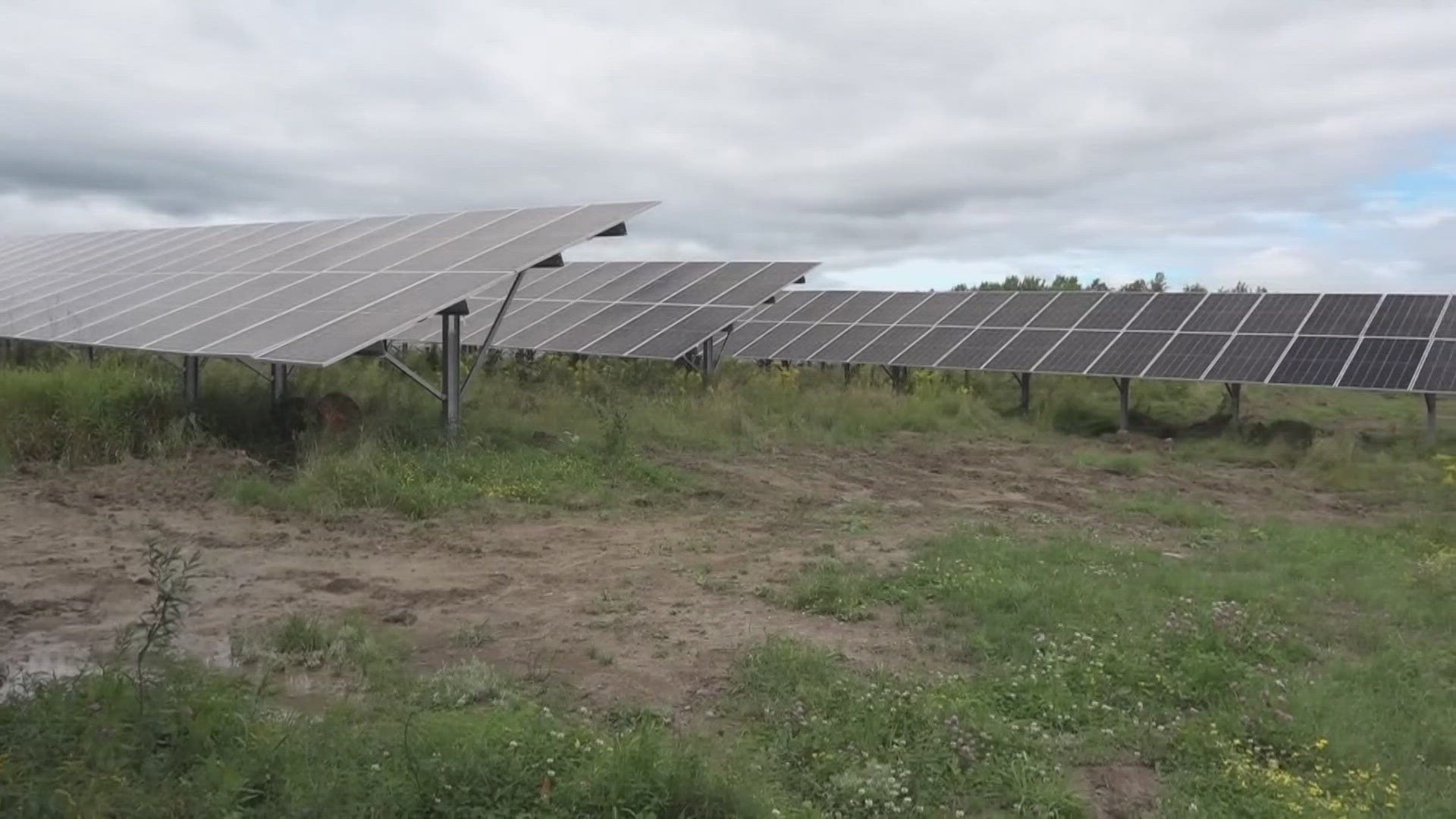ARUNDEL, Maine — Maine farmland made worthless by PFAS chemicals could be put back into production again through harvesting the power of the sun.
Last month, regulators approved new rules following 2023 state legislation that calls for renewable energy generated on contaminated land, clearing the way for the development of thousands of megawatts of new clean power.
The process would not only expand renewable energy in Maine but will also give farmers devastated by the toxic chemicals a new source of income.
Fred Stone has watched his century-old dairy farm go belly up.
"There is a lot of hurt and pain around here," Stone said, his face downcast.
Stone was the first farmer to speak out in 2016 about PFAS chemicals discovered in his cow's milk, soil, feed, drinking water, and family's blood. The source was traced to wastewater sludge shipped to his farm and spread as fertilizer, a practice the state said was safe. His farm shut down soon afterward, but he turned down a state buyout in favor of renewable energy.
"It was not the option I wanted or the one I would have liked to have had, but it was probably the only thing we could do financially," Stone explained.
The Maine Public Utilities Commission approved new rules to open a competitive bidding process to develop nearly 600,000 megawatts of new clean power. The process prioritizes tainted land like Stone Ridge Farm for proposed solar projects. Stone signed a 30-year lease with Walden Renewables, a private renewable energy developer, to build a solar array on nearly 100 acres.
Dale Knapp leads the company's New England Development team. He said the permitting, site work, and construction could take up to five years.
"Low-cost, clean energy that benefits all of us who live in Maine and put land to use that serves no other purpose," Knapp enthused.
The project will maintain grasses to contain the contaminated soil and minimize exposure risk.
More than 60 farms have been found to have unsafe chemicals in water and soil.
Eliza Donaghue, executive director of the Maine Renewable Energy Association, said more renewable energy projects will help the state meet its climate goals and give impacted landowners a financial lifeline.
"I have been in touch with landowners who have anxiously awaited these rules and the bidding process -- there is a real interest here and a great need," Donaghu enthused.
As for Stone, the lease also keeps the farm in the family, giving the family three decades to find a way to return the land to farming safely.
To date, state agricultural officials have identified 68 farms affected by PFAS.
Some farmers have received funding from the state's PFAS fund.

